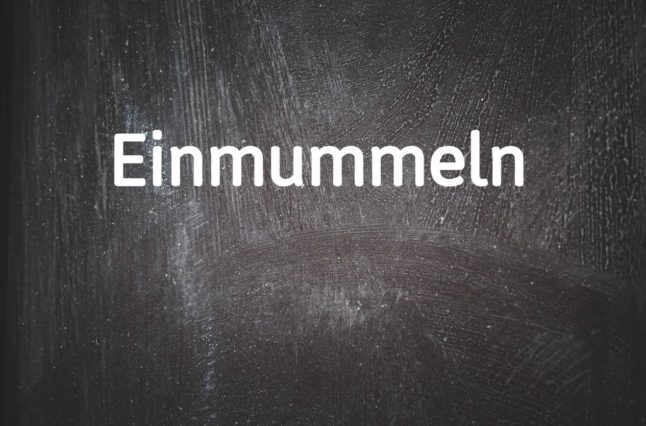What does it mean?
Its literal definition is to wrap or bundle oneself up, usually tightly in thick clothing or blankets to keep warm (similar to swathing a baby).
But figuratively, it means being or making yourself comfortable. It is not only used when wrapping yourself up, but also when covering yourself with a blanket or clothing so that only your head is looking out.
What are its origins?
Originally, this phrase meant covering oneself with a blanket by leaving as little skin out in the open as possible, preferably only the head, in order to shield oneself from the cold.
Possibly, the phrase originates from marmots (Murmeltiere in German) who curl themselves up into fur balls during hibernation to protect themselves from the cold.
A simile to “einmummeln” is “einmummen”, which derives from “mummen” or “vermummen” and means to disguise or conceal. This matches the previous definition of covering yourself up in a blanket or clothing so that only your head is showing.
How is it used?
This informal verb expresses the act or the state of being tucked into your blanket or wrapped in your warm clothing, especially to emphasize that this is snugly, homely and comfy.
You would use it when you have arrived home soaking wet and freezing cold after a walk with your dog, and all you can think of is putting on a thick pair of fluffy socks and snuggling beneath your blanket to get warm again.
Examples
“Wenn wir endlich Zuhause sind, mummel ich mich in mein Bett ein.”
“When we’re finally home, I will snuggle myself into bed.”
”Lass uns doch in die Decke einmummeln und einen Film schauen.”
“Let’s wrap ourselves up in the blanket and watch a movie.”
“Guck mal, Oscar hat sich unter der Decke eingemummelt.”
“Look, Oscar made himself comfy under the blanket.”



 Please whitelist us to continue reading.
Please whitelist us to continue reading.
Member comments